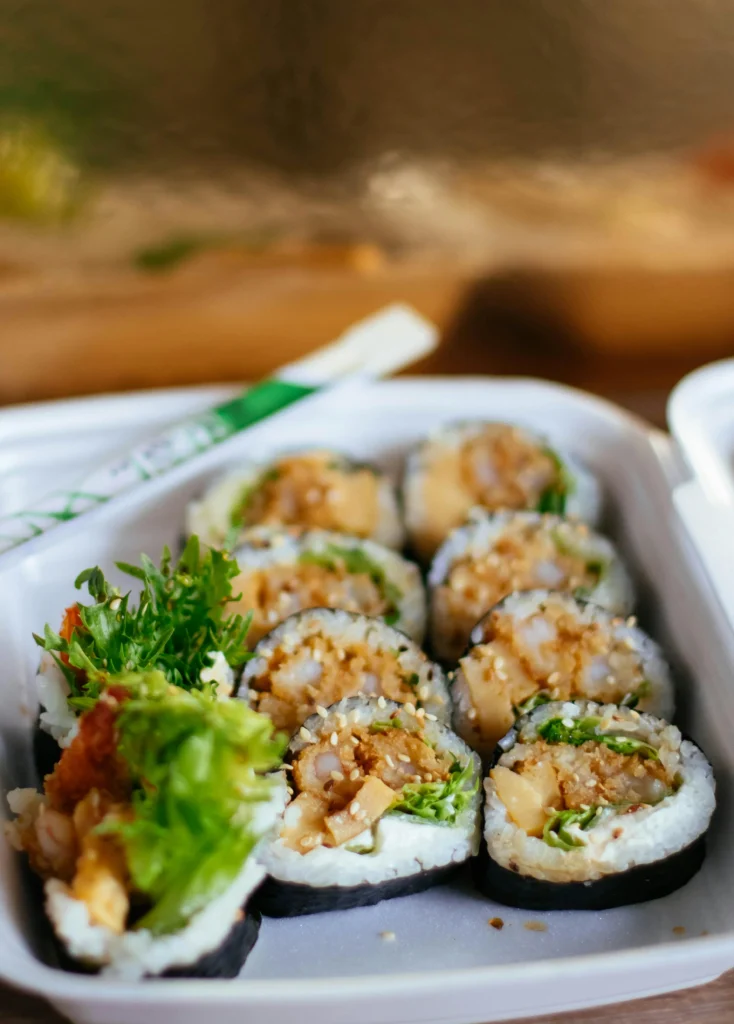Introduction
Although the California Roll Sushi is known as a true expression of the fusion of Japanese and American cuisines, it also has its own history and distinct cultural identity. It transcends the originality and flexibility of sushi into different ingredients depicting them better and more aesthetically than before. In its unique flavor of avocado creaminess, cucumber crispness, and imitation crab savoriness rolled in seaweed sheets encasing rice, the California Roll sushi has been the winner at least for sushi addicts around the world.
Origin Story of California Roll Sushi
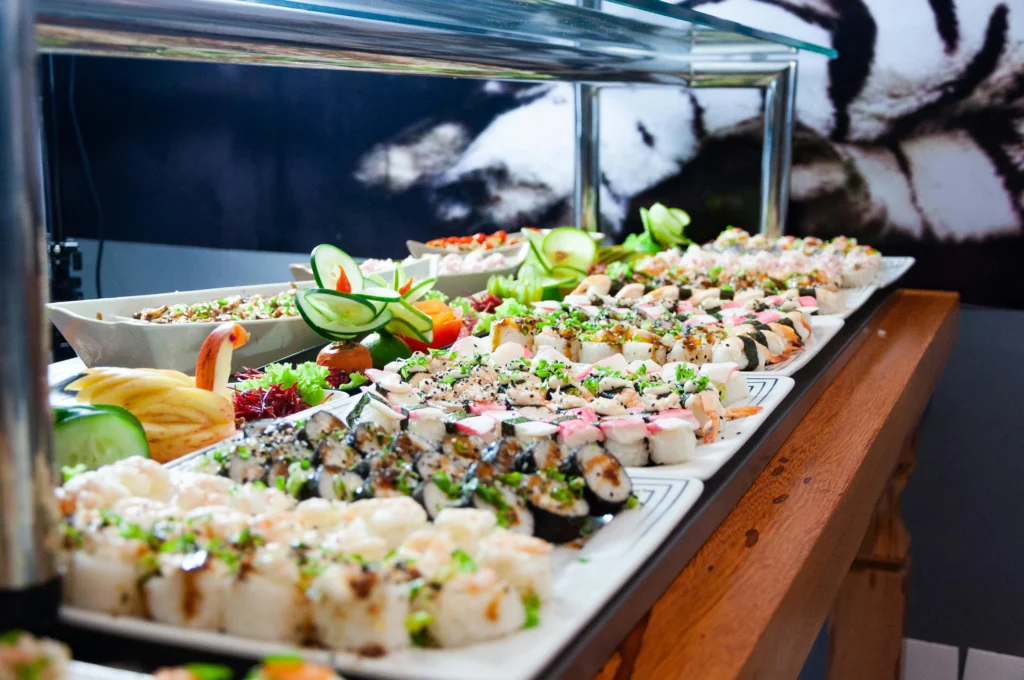
The story about Kanzuri maki, sushi California, is rooted in the 1960s in the USA, where it was first created by sushi chefs coming from Japan and designed a dish that could be used for Americans, who were not yet sure about eating raw fish. They did something very smart – they got rid of the raw fish alternative for cooked ingredients such as imitation crab which in turn made this dish more acceptable for the wide audience. As a result, the sushi California roll, named after its place of origin and created to be acceptable for Western people made its appearance, due to its special features.
Ingredients That Define California Roll Sushi
At the heart of the California roll sushi are its key ingredients: sushi rice, nori (seaweed), avocado, cucumber slices, and imitation crab filaments. Every part has its quality and taste which contributes significantly to the integrity of the roll. Besides texture, it’s rice vinegar, sugar, and salt mixed seasoning that makes it sticky and also bonds the roll. The nori contributes a beam of umami as the containing the sushi exterior.
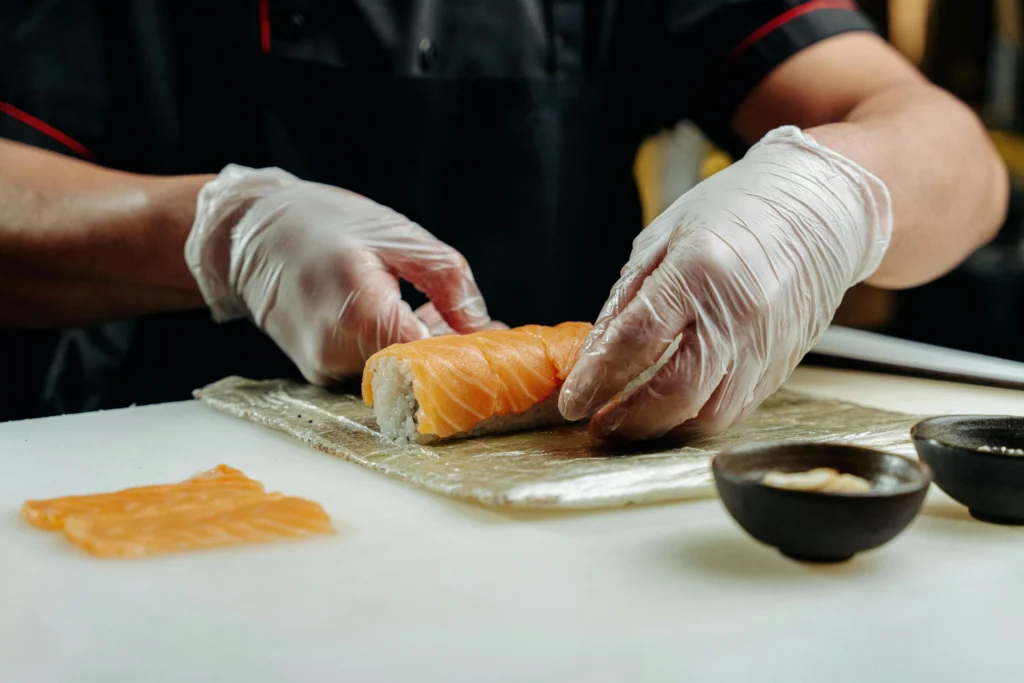
Creamy avocado slices fulfill the role of butter doubt, while crisp cucumber sticks provide an extra bit of freshness. The whole combinations strike a perfect balance between ambrosial and summery. The final layer is the shredded imitation crab that resembles crab meat, but also offers a savory bite that provides the dish with grounding it all together.
The Art of Rolling California Roll Sushi
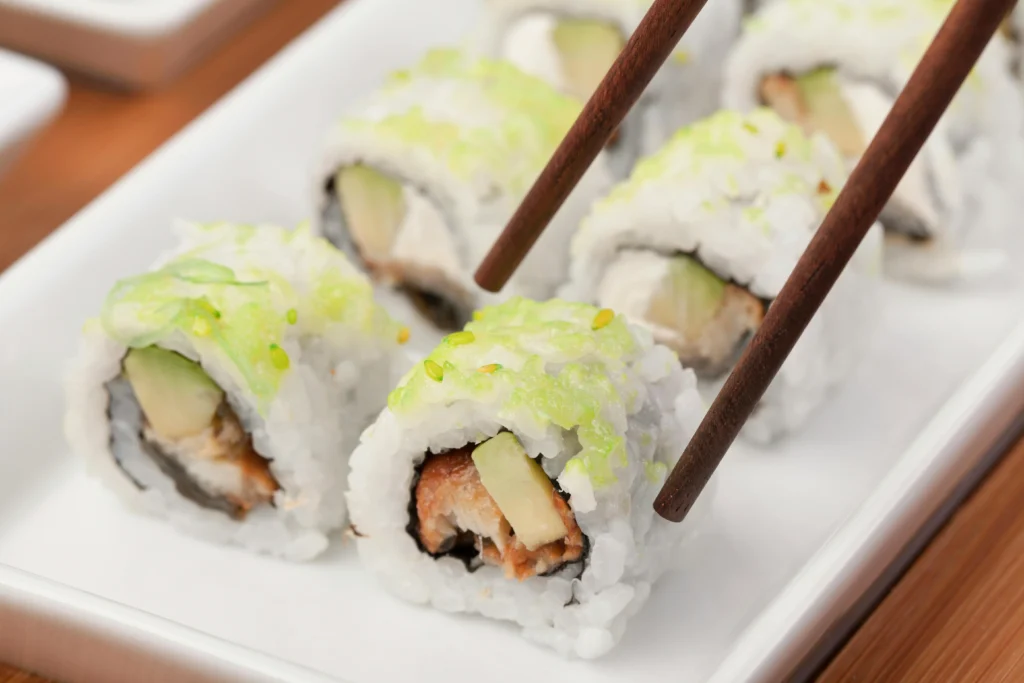
The assembly of a California roll sushi is a kind of art that avoids no detail and it seeks nothing but perfection. The procedure of it being done starts with preparing the sushi rice, rice gets rinsed for the excess starch to come out and then cooked to a Magnificent level. Making use of a vinegar/seasoning mixture to add more flavor and gloss is another similarity the rice has with the sushi. By the time the rice is done, now being spread both evenly and thin across the sheet of nori which would yield a small border along one edge.
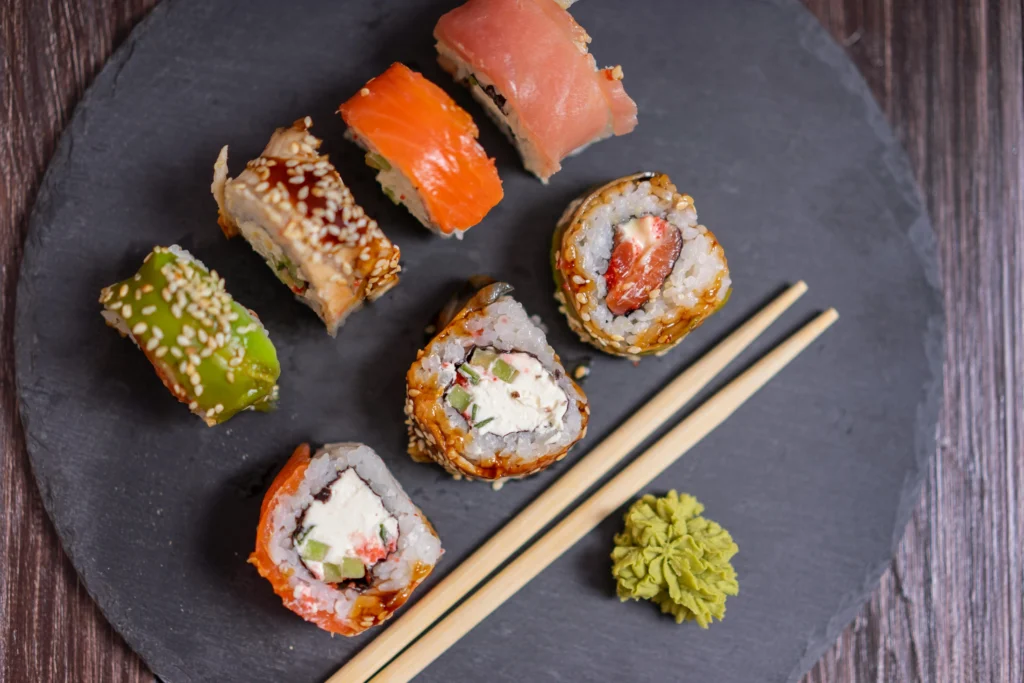
The contents are then stacked in a clear line through the center of the rice layer. This includes cucumber, avocado, and imitation crab. Respectively, a bamboo sushi rolling mat helps in rolling the sushi away from you, and, the process must be performed carefully lest the components escape. Last but not least, the rolls are sliced into bite-sized pieces, causing the different color layers to be revealed.
Serving and Enjoying California Roll Sushi
In California’s delights, a sushi roll is perfect and one should never forget to serve soy sauce, pickled ginger, and wasabi. Soy sauce and pickled ginger blend in here together, adding a salty rich flavor to the sauce while pickled ginger cleanses the palate in between bites.
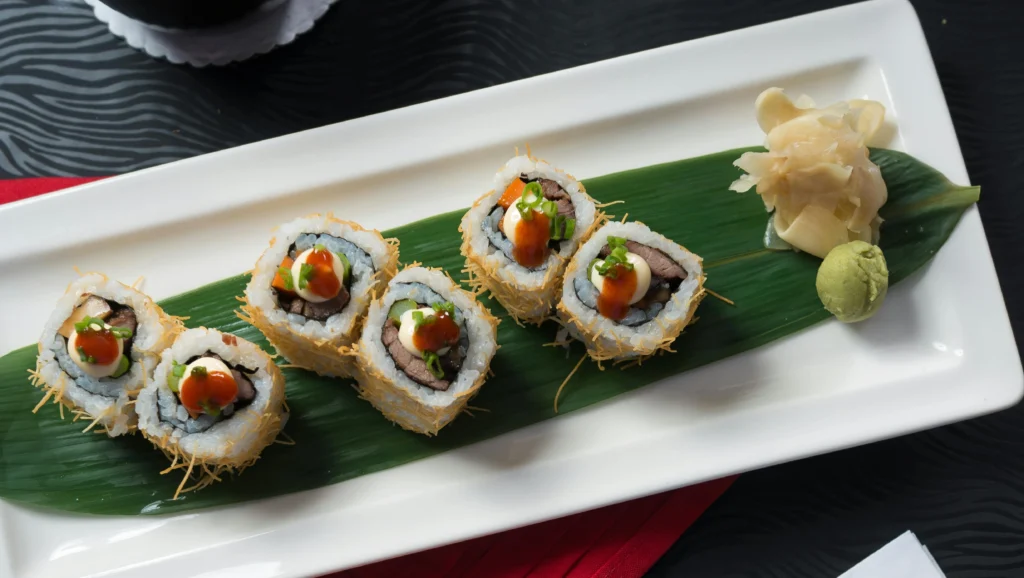
With the sensationally soaring taste of wasabi, you can give a gentle accent of almost spicy hotness to your dish, in case you need to. It doesn’t matter how you use it alone or with the rest of the plate… the sushi roll from California can continue to make you happy with its sweet and beautiful mix of textures and flavors.
Try More Recipe:- Deliciously Easy Chicken Lo Mein Recipe: A Flavorful Fusion
Delicious California Roll Sushi Made Simple: Try It Today!
Description
There is the famous California roll sushi in which imitation crab, avocado, cucumber, and seaweed sheets are used as a container, and sticky, rice is used. It is tasty and a sushi recipe that is quite simple to make. Hence, it is such a great option for sushi lovers of all levels.
Ingredients
Optional Ingredients:
Instructions
-
Prepare the Sushi Rice:
- Rinse the sushi rice under cold water until the water runs clear.
- Cook the rice according to package instructions.
- In a small bowl, mix the rice vinegar, sugar, and salt until dissolved.
- Once the rice is cooked, transfer it to a large bowl and gently fold in the vinegar mixture. Allow the rice to cool to room temperature.
-
Prepare the Fillings:
- Julienne the cucumber and slice the avocado.
- Shred the imitation crab sticks into thin strips.
-
Assemble the California Rolls:
- Place a sheet of nori on a bamboo sushi rolling mat.
- With wet hands, spread a thin layer of sushi rice evenly over the nori, leaving a small border along the top edge.
- Arrange the cucumber, avocado, and shredded crab sticks in a line across the center of the rice.
- Using the bamboo mat, tightly roll the sushi away from you, applying gentle pressure to seal the roll.
- Repeat with the remaining nori sheets and fillings.
-
Slice and Serve:
- Using a sharp knife, slice each roll into 6-8 pieces.
- Serve the California roll sushi with soy sauce, pickled ginger, and wasabi on the side.
Servings 5
- Amount Per Serving
- Calories 250kcal
- % Daily Value *
- Total Fat 14g22%
- Saturated Fat 2g10%
- Cholesterol 5mg2%
- Sodium 136mg6%
- Potassium 328mg10%
- Total Carbohydrate 25g9%
- Dietary Fiber 4g16%
- Sugars 4g
- Protein 5g10%
- Vitamin A 425 IU
- Vitamin C 7.8 mg
- Calcium 44 mg
- Iron 2 mg
* Percent Daily Values are based on a 2,000 calorie diet. Your daily value may be higher or lower depending on your calorie needs.
Note
- Use sushi-grade rice for the best results.
- You can find nori, sushi rice, and other ingredients in most Asian grocery stores.
- Make sure to have a bamboo sushi rolling mat on hand for rolling the sushi.

